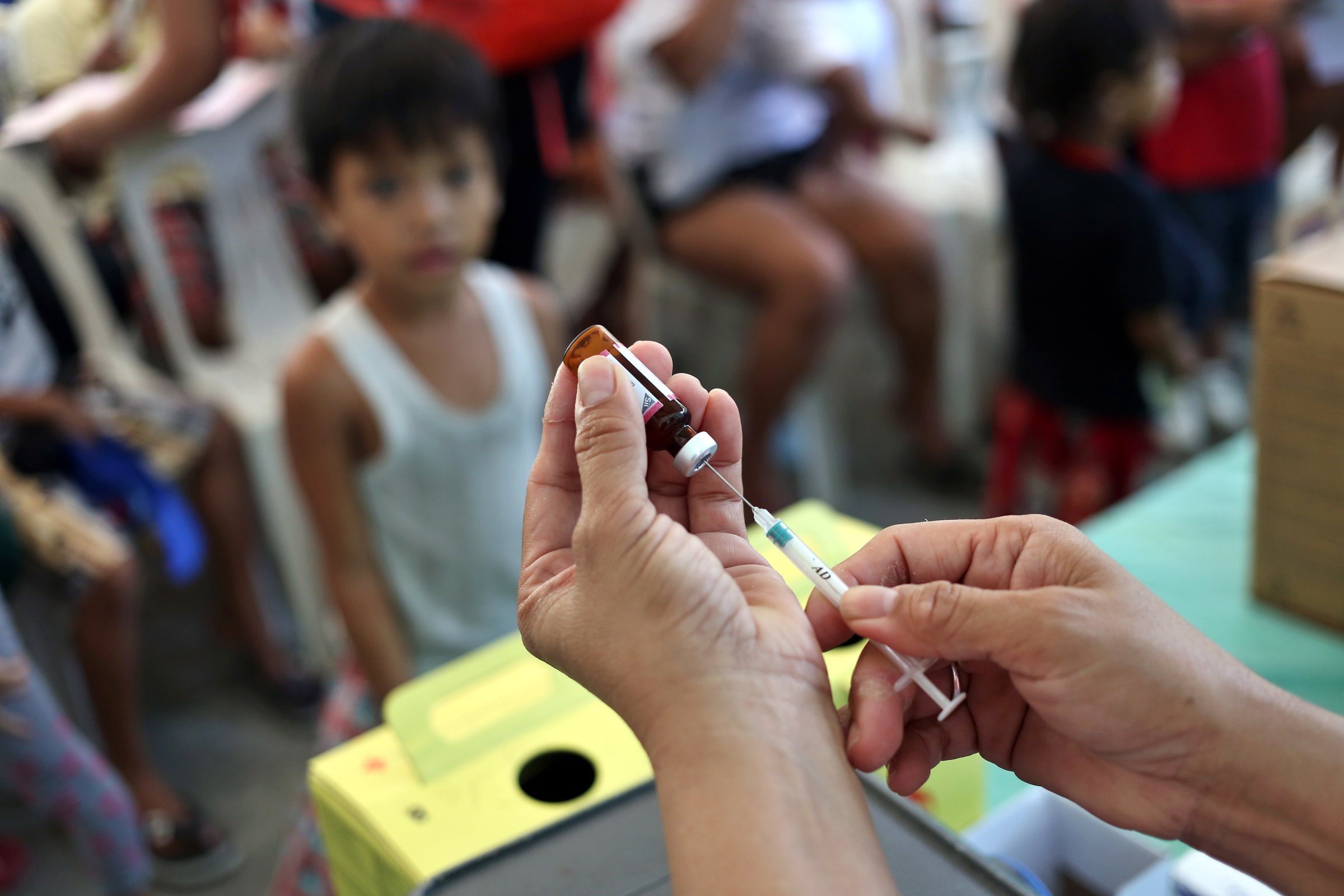
Measles cases are soaring around the world, including in areas previously declared measles free, according to the U.N. Children’s Fund.
Last year, 98 countries reported an uptick of measles cases, UNICEF said Thursday, while pinning the “alarming” resurgence of the disease on poor infrastructure and conflict in some cases, and “complacency” and an anti-vaccine movement in others.
“Almost all of these cases are preventable, and yet children are getting infected even in places where there is simply no excuse,” said Henrietta H. Fore, UNICEF’s executive director.
Just 10 countries accounted for about three-quarters of the total rise, according to UNICEF, which analyzed data from the World Health Organization.
Ukraine, Philippines and Brazil saw the largest increases. In Ukraine, there were 35,120 cases of measles in 2018, up from 4,782 in 2017. The government reported that another 24,042 people were infected in just the first two months of 2019.
Brazil, which had no reported cases in 2017, recorded 10,262 last year.
Measles, a respiratory illness, is more contagious than Ebola, tuberculosis or influenza. There is no specific treatment for measles, so vaccination can mean the difference between life and death, according to UNICEF.
“This is a wake up call. We have a safe, effective and inexpensive vaccine against a highly contagious disease – a vaccine that has saved almost a million lives every year over the last two decades,” Fore said.
She added that a “lack of action today will have disastrous consequences for children tomorrow.”
The report suggests the rise in measles cases is in part attributable to the anti-vaccination movement. In January, the World Health Organization named “vaccine hesitancy” a top 10 threat to global health in 2019.
An outbreak of measles in the Pacific Northwest, which has lower-than-usual vaccination rate, prompted an emergency declaration in Washington state last month. The U.S. saw a six-fold increase in measles cases in 2018, according to UNICEF.
UNICEF is urging governments and healthcare professionals to strengthen immunization programs and ensure parents understand that vaccines are safe and effective.
“Measles may be the disease, but, all too often, the real infection is misinformation, mistrust and complacency,” Fore said.
More Must-Reads from TIME
- Cybersecurity Experts Are Sounding the Alarm on DOGE
- Meet the 2025 Women of the Year
- The Harsh Truth About Disability Inclusion
- Why Do More Young Adults Have Cancer?
- Colman Domingo Leads With Radical Love
- How to Get Better at Doing Things Alone
- Michelle Zauner Stares Down the Darkness
Write to Hillary Leung at hillary.leung@time.com